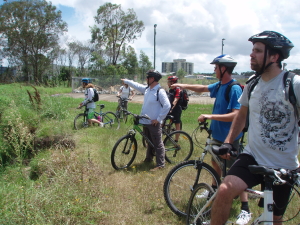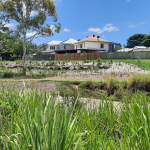Upcoming Events
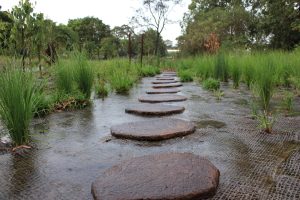
Stormwater Queensland are pleased to announce the first of a new series of stormwater technical tours to be hosted by the association. The first tour will showcase some of the latest WaterSmart solutions from around Brisbane.
This tour will be a fantastic opportunity to experience first-hand a broad range of different projects and hear about the challenges and solutions related to the funding, design, construction and establishment of each system. This tour aims to provide participants with the chance to learn directly from the practitioners involved in bringing the projects to fruition with plenty of opportunities for questions, debate and discussion. The tour will also include active networking opportunities to help build new relationships, strengthen existing relationships and encourage the sharing of ideas and experiences.
Sites to be featured on this Technical Tour include:
• A Brisbane River Backflow Prevention Device: This is a key initiative of Brisbane City Council in response to lessons learnt during previous flooding events.
• Two Stormwater Treatment/Harvesting Wetlands: These are the first Stormwater Harvesting Wetlands constructed in Brisbane, designed to achieve multiple values. Sites include Whites Hill Reserve and Ekibin Park.
• Two Retrofit ‘Creek Filtration’ Systems: These systems were constructed as part of a trial aimed at exploring low cost ways to managing stormwater in existing urban areas. Sites include Glindemann Park Creek Filtration and Greenslopes Creek Filtration System.
• Bowies Flat Wetland: This was the first stormwater treatment wetland in Queensland, the lessons of which continue to influence design today. Recent investment in the wetland has resulted in correcting some of the previous design issues and aims to revitalise the wetland.
Speakers will include:
Chris Wilson (Brisbane City Council)
Christopher is a Design Manager with over 35 years’ experience in civil design within local government. His special expertise includes detailed design of Urban Stormwater Relief drainage, project documentation, project management and design team supervision. His primary role is to lead a team of design professionals delivering design for Council’s annual Drainage Capital Works program valued at $27 Mil 2014/15.
He assisted in the drafting of the original BCC Water Sensitive Road Design Guidelines and for many years advised on the development of BCC Stormwater infrastructure standards and specifications. Since 2011 he has been the Technical Lead / Design Manager for the Brisbane River Backflow Prevention project.
Christopher has a Diploma of Project Management from UNE is a member of AIPM and is RPPD.
Natalie Baker (Brisbane City Council)
Natalie has worked on large scale river restoration projects in the Murray Darling Basin and currently works as a senior project officer at Brisbane City Council in the waterway health team. Natalie is experienced in project planning and management, stakeholder and community engagement, science communications and knowledge sharing with a specific focus on river restoration and integrated water resource management. In her current role at Brisbane City Council, Natalie is responsible for coordinating an evidenced based approach to maximise investment in waterway health enhancement works.
Adrian Crocetti (Brisbane City Council)
Adrian is a Senior Program Officer in the City Planning and Sustainability Division within Brisbane City Council. After starting his career in the construction industry, followed by completing an Engineering Degree, Adrian joined Brisbane City Council seven years ago, where he worked on landfill remediation and stormwater harvesting projects. Adrian is now involved in the policy, planning and programming for WSUD assets with a particular focus on ensuring the proper operation and maintenance of these devices. Adrian’s unique skillset and hands-on approach has allowed him to forge new levels of cooperation between different sections of Council ensuring that there is a strong link between policy and operational aspects of WSUD.
Mark Gibson (Brisbane City Council)
Mark studied a Bachelor of Civil Engineering at the University of Queensland and while studying worked casually at Redlands City Council, Brisbane City Council and Geo-Eng (formally Neville Jones and Associates). Upon graduating Mark accepted a fulltime position at Geo-Eng, who straight away seconded him to Brisbane City Council Flood Management Department. After six months Mark took a fulltime position at the Council. Of his experience, he is appreciative of the extensive tutoring in hydrology, hydraulics and flood management by his peers at the Council, some of which included Grant Witheridge, Malcolm Eadie, Helen Abraham, Ken Morris, Darren Rogers, Damien McGarry and Martin Giles.
After a few years Mark entered the private industry again, this time joining Coffey Water Studies where he was first exposed to 2D hydraulic modelling, insurance assessment, mine site and quarry water management, stormwater quality modelling and long hours. After two years Mark joined Stormwater Consulting as a junior partner and learned a lot about business management, accounting and running a small business, as well as working with small developers and civil engineers. In May 2004, Mark formed his own company, MRG Water Consulting Pty Ltd.
MRG Water Consulting has specialised in flood risk management, stormwater quality improvement and assisting developers, mining firms and local government with tricky water issues. In the last 10 years the business has grown to 5 staff, (still small but good!) In 2012, Mark took a part time position at Brisbane City Council again, working in the Water Management Section. Mark works as the director of MRG water Consulting 2 days per week.
Working at the Council has allowed Mark to focus on interesting projects such as the creek filtration systems. He is passionate about improving waterway health, reducing flood damage and risk and protecting our critical infrastructure.
Damian Thompson (Lat 27)
Damian is one of the founding directors of the multi-disciplinary design practice Lat27 and has practiced Landscape Architecture for over two decades. His design approach involves the creative interpretation of natural systems in ways that enrich the quality of urban communities. He has a long association with QUT as tutor and guest lecturer and co-founded the 2011 ‘flood of ideas’ project in support of disaster-resilient communities.
Tim Evans (Civil Dimensions)
Tim is one of the founding members and Director at Civil Dimensions Pty Ltd. With over 22 years in the industry, he has experience in a broad range of projects including a number of UDIA award winning projects located in Queensland. Tim has proven track record to deliver quality projects with innovative solutions from concept through to handover. Tim has been directly involved and led engineering teams on numerous water sensitive developments, many of which completed in coordination with BMT WBM.
Alan Hoban (Bligh Tanner)
Alan Hoban has expertise in integrated water cycle management and sustainable urban design. Alan has been behind a number of successful initiatives including Water by Design, Flood of Ideas, Flexicar, and Cool Communities.
He advises state and local governments and developers on policy, planning and technical standards for better urban water management, and is the recipient of a number of project and individual awards. He is the Principal Environmental Engineer with Bligh Tanner.
Paul Dubowski (BMT WBM)
Paul is a senior environmental scientist with 11 years of experience in the water industry. Since joining BMT WBM in 2010, he has worked across a range of fields including stormwater management, catchment management, ecology and environmental management. Paul has led numerous water sensitive urban design (WSUD) projects from conceptual design through to maintenance, strategic policy and planning, capacity building projects for local governments and catchment/waterways management initiatives.
Prior to his current role, Paul spent two years with the Water by Design program of the South East Queensland Healthy Waterways Partnership focusing on sustainable urban water management. He was involved with the management, delivery and support of: local and state policy; guidelines; professional development initiatives; and organisational strengthening initiatives. Paul’s also spent five years in local government managing the impacts of urban development on natural assets.
Paul is passionate about the sustainable ecological management of waterways and helping to shape the future of water sensitive cities with a particular interest in the relationships between these two interests.
Secure your place now at this not-to-be-missed Technical Tour by downloading the Registration Form via here.
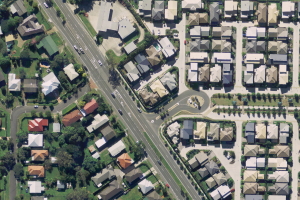
“The Death of the Backyard – An Issue for Stormwater” by Professor Tony Hall.
Tony will be present for approximately 45 minutes, with approximately 15 minutes for discussion/ questions. Finger food and drinks will be provided beforehand.
About the subject:
A substantial backyard has long been considered an iconic feature of Australian suburbs. From the air, they appear dominated by tree cover. Nevertheless, since the late 1990s, almost all new houses throughout the country have had minimal planted space around them. From above, they seem to be almost roof-to-roof. Taken together with the adjacent wide roads and concrete driveways, this clearly has severe adverse implications for stormwater run-off.
The issue is larger houses rather than higher densities. It appears driven by the trend towards greater debt, longer working hours and an indoor, air-conditioned, car-based lifestyle. Planning codes, while not actually encouraging the trend, do nothing to prevent it. It has serious ecological implications for the community as a whole, including a significant reduction not only in sustainable drainage but also in biodiversity and a beneficent microclimate.
About the author:
Tony Hall has been an Adjunct Professor within the Urban Research Program at Griffith University since 2004. He was previously Professor of Town Planning at Anglia Ruskin University, Chelmsford, UK. Rather unusually, he also served as a local councillor and led Chelmsford’s planning policy for seven years, obtaining a government award for quality of the built environment in 2003.
Tony’s book, The Life and Death of the Australian Backyard, was published by CSIRO Publishing in 2010 and won the 2012 Planning Institute of Australia National Award for Excellence in Cutting Edge Research.
To secure your place at the Seminar, download and complete the registration form via the following link: http://www.gemsevents.com.au/Resources/sq_feb_regoform.pdf
Should you have any questions about the event, please contact GEMS Event Management on +61 2 9744 5252 or via email to registration@gemspl.com.au.
Stormwater Queensland is delighted to invite you to the second WaterSmart Bus Tour to be held on Wednesday, 29th April 2015. The WaterSmart Bus Tour will be a fantastic opportunity to experience first-hand, a very broad range of catchment management projects and to hear about the challenges and solutions related to each project. This tour will also provide participants with the chance to learn directly from the practitioners involved in bringing the projects to fruition, with plenty of opportunities for questions, debate and discussion.
Sites to be featured on this Technical Tour include:
- Fitzgibbon Chase Urban Development Project: This innovate project site includes:
- The potable roofwater (PotaRoo) project which directs harvested roofwater to a central storage and treatment plant to potable quality for reuse.
- The Fitzgibbon Stormwater Harvesting (FiSH) scheme. The project collects urban stormwater runoff for filtering and disinfection prior to distribution via a 3rd pipe dual reticulation system for on-potable uses.
- Other examples of best practice Water Sensitive Urban Design (WSUD) (e.g. bioretention).
This project was the winner of the 2012 Australian Water Association (Qld) Infrastructure Innovation Award and the 2012 Healthy Waterways Water Sensitive Urban Design Award.
What made this project feasible and why isn’t this level of stormwater treatment applied on every residential development site?
- Pickering St, Enoggera – Natural Channel Design: This was the first attempt at ‘Natural Channel Design’ in Queensland. Lessons from this site continue to influence today’s guidelines and designs. Is the approach taken on this site transferrable to other creeks and what did we learn from this early example?
- Bennett Road, The Gap – fish passage retrofit project: This project aimed to restore fish passage through existing culverts by retrofitting a proprietary fishway. This project was the winner of the 2011 Healthy Waterways Industry Award. Why wasn’t a more natural approach used here and what does the post-construction fish monitoring data tell us about designing such systems?
- Kirralee Crescent, Upper Kedron – ‘Creek Filtration Trial Project’: This system was the first system constructed as part of a trial aimed at exploring low cost ways to managing stormwater in existing urban areas. This project was the winner of the 2014 Healthy Waterways Urban Renewal. Why wasn’t a regular bioretention system constructed here, what cost savings does it offer, is this ‘alternative’ design appropriate and can it be applied elsewhere?
Speakers will include: David Hamlyn-Harris (Bligh Tanner), Grant Witheridge (Catchment and Creeks), Ross Kapitzke (James Cook University), Damian Thompson (Lat 27), Mark Gibson (Brisbane City Council) and Paul Dubowski (BMT WBM).
Register your attendance now, as seats are limited! Click here to Register.
Presenters:
 |
David Hamlyn-HarrisDirector of Water and Environmental Engineering, Bligh Tanner
David is Director of Water and Environmental Engineering and has 34 years’ professional experience in the Australian water industry across all aspects of municipal water supply and wastewater engineering. David has a particular interest in local alternative water management systems, in particular the integration of stormwater harvesting, rainwater tanks and water recycling into urban water infrastructure. He has been responsible for major wastewater treatment plant upgrades and significant water infrastructure planning programs such as the Sydney Olympic Park water management systems and the Pimpama Coomera Waterfutures Master Plan on the Gold Coast. More recently, David has developed guidelines for stormwater harvesting for the Healthy Waterways Partnership; a feasibility study for roofwater and stormwater harvesting for potable use in Melbourne; and has completed several stormwater harvesting schemes including the South Bank Rain Bank and the Fitzgibbon FiSH and PotaRoo. |
 |
Grant Witheridge Grant Witheridge is a civil engineer working in the fields of Hydraulics, Stormwater Management, Waterway Management, Fish Passage, and Erosion & Sediment Control. He has both a Degree and Masters in Civil Engineering from the University of NSW. He has over 30 years of experience in the investigation, modelling and design of hydraulic structures, including 7 years at the University of NSW Water Research Laboratory.Currently Grant is working as an engineering consultant through his own company Catchments and Creeks Pty Ltd.He is the principal author of a number of technical publications including the Brisbane City Council Natural Chanel Design Guidelines, IECA Australasia 2008 Best Practice Erosion and Sediment Control documents, and the 2007 and 2013 editions of the Queensland Urban Drainage Manual (QUDM).Since 1996 Grant has conducted over 500 training courses in construction site erosion and sediment control, stormwater management and waterway rehabilitation. In 2009 Grant was presented with the inaugural ‘Neville Gibson Award’ for services to the stormwater industry by the Queensland Branch of the Stormwater Industry Association. In 2010 Grant was honoured with the ‘Sustained Contributor Award’ for 2009 by the International Erosion Control Association. |
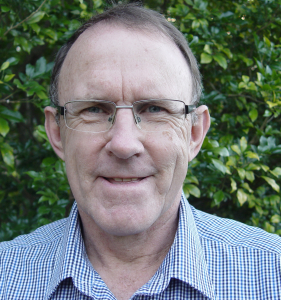 |
Ross Kaptzke Ross Kapitzke is an Environmental Engineer specialising in multipurpose planning and design for waterways, with a particular focus on fish passage design. Ross has worked through James Cook University as a consultant and in R & D in these fields for more than 20 years [http://www.jcu.edu.au/fishpassagedesign/]. He has developed specialist capability in assessment, design and evaluation for fish passage and stream rehabilitation; and in the design, development and testing of fish passage facilities for small waterway structures. Ross’s innovating work in this field has led to design and manufacturing of the award-winning Walaman prefabricated fishway system [http://walaman.com.au/].Ross has played a leading role in the development of fish passage solutions in Queensland for State Government, Councils and other clients. His work includes aquatic fauna connectivity impact assessment at catchment and road corridor scales, and concept design, detailed design and implementation of fish passage mitigation measures for a wide range of fish migration barrier problems. Ross is author of Culvert Fishway Planning and Design Guidelines (James Cook University 2010 – http://www.jcu.edu.au/fishpassagedesign/), and he continues to work on development and assessment of fishway design types and prefabricated fishway components in laboratory, field sites and prototype fishway facilities [http://www.youtube.com/walamanfishways]. |
 |
Damian Thompson Director, Lat 27 Damian is one of the founding directors of the multi-disciplinary design practice Lat27 and has practiced Landscape Architecture for over two decades. His design approach involves the creative interpretation of natural systems in ways that enrich the quality of urban communities. He has a long association with QUT as tutor and guest lecturer and co-founded the 2011 ‘flood of ideas’ project in support of disaster-resilient communities. |
 |
Mark Gibson Senior Engineer Water Management, Brisbane City Council Mark studied a Bachelor of Civil Engineering at the University of Queensland and while studying worked casually at Redlands City Council, Brisbane City Council and Geo-Eng (formally Neville Jones and Associates). Upon graduating Mark accepted a fulltime position at Geo-Eng, who straight away seconded him to Brisbane City Council Flood Management Department. After six months Mark took a fulltime position at the Council. In May 2004, Mark formed his own company, MRG Water Consulting Pty Ltd. MRG Water Consulting has specialised in flood risk management, stormwater quality improvement and assisting developers, mining firms and local government with tricky water issues. In the last 10 years the business has grown to 5 staff, (still small but good!) In 2012, Mark took a part time position at Brisbane City Council again, working in the Water Management Section. Mark works as the director of MRG water Consulting. Working at the Council has allowed Mark to focus on interesting projects such as the creek filtration systems. He is passionate about improving waterway health, reducing flood damage and risk and protecting our critical infrastructure. |
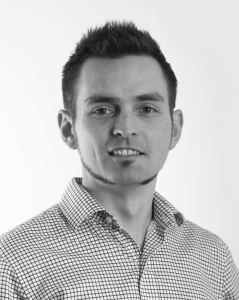 |
Paul Dubowski Senior Environmental Scientist, BMT WBM Paul is a senior environmental scientist with 11 years of experience in the water industry. Since joining BMT WBM in 2010, he has worked across a range of fields including stormwater management, catchment management, ecology and environmental management. Paul has led numerous water sensitive urban design (WSUD) projects from conceptual design through to maintenance, strategic policy and planning, capacity building projects for local governments and catchment/waterways management initiatives. |
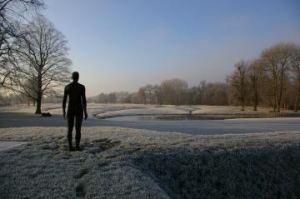
On behalf of Stormwater Queensland, we are pleased to announce that we are holding our very first Winter School Program this August. The Stormwater Queensland August Winter School will feature Workshops conducted by Grant Witheridge (Catchment and Creeks), Jack Mullaly and Andrew O’Neill (Healthy Waterways). The school will be held over a period of five days and allows you to choose individual daily workshops, which suit your needs and to improve your knowledge and skills in stormwater quantity and quality design.
To register for one or more of the workshops, to be held as part of the Stormwater Queensland August Winter School, click here.
Workshop Schedule
| Monday, 31st August | Workshop 1 – Application of the Rational Method and Aspects of Piped Drainage Design Presenter: Grand Witheridge |
| Tuesday, 1st September | Workshop 2 – Water Sensitive Urban Design (WSUD) Principles and Concept Design Presenters: Jack Mullaly and Andrew O’Neill |
| Wednesday, 2nd September | Workshop 3 – Design of Stormwater Outlets and Design of Fauna Sensitive Waterway Crossings Presenter: Grant Witheridge |
| Thursday, 3rd September | Workshop 4 – Water Sensitive Design (WSUD) Detailed Design Presenters: Jack Mullaly and Andrew O’Neill |
| Friday, 4th September | Workshop 5 – Treatment of Creek Erosion and Natural Channel Design Presenter: Grant Witheridge |
Workshop Outlines
The following Workshops will be presented over the five days of the Stormwater Queensland August Winter School:
Workshop 1 (Part 1) – Application of the Rational Method
Introduction to the various hydrological methods used to determine design discharge or small to medium catchments. Detailed discussion is provided on the application of the Rational Method and the various procedures as presented within the Queensland Urban Drainage Manual for the determination of time of concentration. It is hoped that the Workshop will also provide students with an update on AR&R attitude to the continued use of the Rational Method in drainage design.
Workshop 1 (Part 2) – Aspects of Piped Drainage Design
This workshop has been developed for practitioners who have past experience in stormwater drainage design. Discussion is provided on the reasoning behind many of the design rules used in pipe drainage design. The workshop reviews hydraulic gradeline (HGL) analysis, structure losses, methods to achieve a reduction in pit losses, and the hydraulics of inlet structures.
Workshop 2 – Water Sensitive Urban Design (WSUD) Principles and Concept Design
This workshop will focus on the application of WSUD to reduce the impact of urbanisation and meet state and LG policy requirements. The workshop will include training on implementing WSUD principles, WSUD concept design and integration. This will include practical exercises in WSUD concept design that can be highly valuable when preparing stormwater management plans.
Workshop 3 (Part 1) – Design of Stormwater Outlets
This workshop reviews the design of stormwater outlets, and their integration into various receiving environments, including discussion on aesthetics, headwall design, pubilc safety, inlet and outlet screens, erosion control, maintenance and water quality issues.
Workshop 3 (Part 2) – Design of Fauna Sensitive Waterway Crossings
This workshop focuses on the design of various types of waterway/roadway crossings, with the aim of minimising their impact on aquatic and terrestrial fauna passage. The workshop reviews design and rehabilitation of waterway culverts.
Workshop 4 – Water Sensitive Urban Design (WSUD) Detailed Design
This workshop will focus on the detailed design of wetlands, bioretention and swales. This workshop will include working through a detailed “WS design”, also considering a number of other aspects of stormwater drainage design, that has been included in other Winter School workshops (e.g. outlets, hydraulic calculations, etc).
Workshop 5 (Part 1) – Treatment of Creek Erosion
This is a practical-based workshop on the various forms and causes of creek erosion, providing detailed discussion on the selection and application of a wide range of treatment techniques. The primary focus of the workshop is on the use of natural materials, such as vegetation and rock to control creek erosion.
Workshop 5 (Part 2) – Natural Channel Design
This workshop introduces the concepts of Natural Channel Design (NCD) for use in the design of drainage channels and the rehabilitation of minor watercourses, within heavily modified catchments. The workshop will also discuss some of the lessons learnt since the release of Brisbane City Council’s NCD Guidelines of 2000.
Registration Fees
Stormwater Queensland are committed to providing high quality professional development opportunities to our members. As the August Winter School is a new initiative of the Association, Stormwater Queensland have subsidised the Workshop registration fees by more than 50% of their full value.
| (Fee per Full Day Workshop) | |
| Member | $250.00 |
| Non Member | $350.00 |
| Student | $50.00 |
Please Note: For Participants wishing to attend multiple Workshops, a 20% discount will be applied.
Registration to attend these Workshops includes Morning Tea, Lunch and Afternoon Tea.
Should you have any questions regarding registration, please email registration@gemspl.com.au.
If you would like to know more about the Stormwater Queensland August Winter School, please contact Stormwater Queensland on 1300 721 220.
- Dr Andrew O’Neill, Healthy Waterways
- Elissa McConaghy, Moreton Bay Regional Council
- Josie Raftery, Toowoomba Regional Council
- Kym Whiteoack, RMCG
- Tony Costantini, Planfuture (representing Port of Brisbane)
The Forum will be facilitated by Belinda Chapman from Working Wheel.
Speaker Biographies:

biogeochemistry of constructed wetlands treating acid mine drainage, Andrew conducted research into the disposal of high level nuclear waste in deep rock aquifers in Sweden, degraded river and lake systems in Indonesia, Canada and the USA and natural wetlands and hot springs in Yellowstone and Kamchatka. Andrew has been responsible for the design and delivery of high profile integrated water policy and water sensitive urban design projects in both the public and private realm, and supports uptake of sustainable urban water management with both Australian and international professionals and students.
Elissa McConaghy is a Senior Strategic Planner at Moreton Bay Regional Council with over 10 years’ experience in strategic land use and infrastructure planning. Elissa graduated from Griffith University with a Bachelor of Environment Planning in 2003 and has experience in the fields of development assessment, park and open space planning and design, planning scheme and policy development and infrastructure network planning and charging. Elissa currently manages Moreton Bay Regional Council’s strategic water program covering total water cycle management, floodplain management, and coastal management.
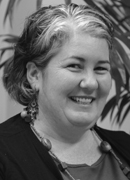
She is passionate about the future, understanding the bigger picture and planning based on good evidence. Her approach to planning is aims to build communities by breaking down silos and finding better ways to communicate expertise.
In her current role, Josie is focussed on the planning and design of public infrastructure for multiple uses to deliver efficiency and better urban design. This includes her focus on the integration of stormwater management with public open space considering the range of values and expectations placed on Toowoomba’s local creeks.

Kym Whiteoak is a Senior Economist with RMCG with expertise in the economic assessment of water quality offsets and the cost-effectiveness of water quality improvement actions. Kym is currently assisting a Victorian water business design, assess and implement a water quality offset, and has assisted many councils and water businesses compare the cost-effectiveness of different stormwater management options as part of integrated water management plans.
Emma O’Neill is the Coordinator (Integrated Water Management) at Ipswich City Council.
Emma has a background in environmental management and planning and in 2015 completed the International Water Centre’s Water Leadership Program as a recipient of the Healthy Waterways Erosion and Sediment Control Leadership scholarship.
Recently Emma project managed (in conjunction with consultants BMTWBM) the development of a robust and transparent framework to guide the use of funds collected under Council’s stormwater quality offsets scheme.
Prior to her role at ICC Emma worked in the Hawke’s Bay in New Zealand dealing with complex water management challenges including assessment of impacts of oil exploration on receiving environments, review of urban stormwater management programs, and highly contentious water allocation projects.
Sally Boer, Stormwater Queensland
This forum will provide the opportunity to develop a common appreciation of associated issues, complexities and future planned activities.
- To improve understanding of innovative pathways for stormwater quality management including but not limited to offsets.
- To improve understanding of current and future planned activities to innovate pathways for stormwater quality management including by not limited to offsets.
- To augment the development of the Stormwater Queensland position statement on innovative pathways for stormwater quality management including but not limited to offsets.
|
Member
|
$190.00
|
|
Non Member
|
$230.00
|
|
Student
|
$120.00
|
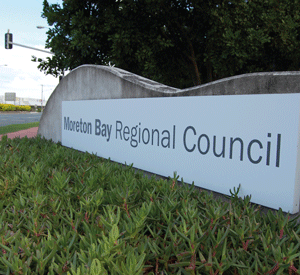
The new Moreton Bay Regional Council Planning Scheme will commence on 1 Febraury 2016. This is the first time since amalgamation that a clear, consolidated strategic planning vision has been established for the entire Moreton Bay Region.
You are invited to a briefing session on the new scheme hosted by Council’s planning staff.
To register and for more details please click here.

The Great Barrier Reef Water Science Taskforce is seeking feedback on its Interim Report which sets out initial recommendations to the Queensland Government on how to deliver substantial reef water quality improvements.
The River Basin Management Society (RBMS) would like to make a submission on behalf of its members. To gather feedback from its members the RBMS would like to host a reading group in Brisbane on the 2nd of Febraury. The Interim Report can be found here.
“It would be great to hear from our members and anyone new who would like to provide feedback on the initial recommendations. If you are unable to attend the reading group but would like to provide feedback please email info@rbms.com.au. Hope to see you there!” – RBMS Committee
To register or for further enquiries click here
The River Basin Management Society presents the award winning documentary “Lost Rivers” Screening.
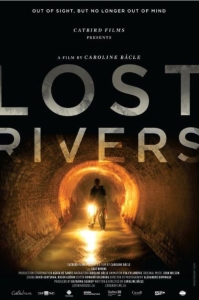
ABOUT THE DOCUMENTARY:
Once upon a time, in almost every industrial city, countless rivers flowed. We built houses along their banks. Our roads hugged their curves. And their currents fed our mills and factories. But as cities grew, we polluted rivers so much that they became conduits for deadly waterborne diseases like cholera, which was 19th century’s version of the Black Plague. Our solution two centuries ago was to bury rivers underground and merge them with sewer networks.
Today, under the city, they still flow, out of sight and out of mind… until now. That’s because urban dwellers are on a quest to reconnect with this denigrated natural world. Lost Rivers takes us on an adventure down below and across the globe, retracing the history of these lost urban rivers by plunging into archival maps and going underground with clandestine urban explorers. We search for the disappeared Petite rivière St-Pierre in Montreal, the Garrison Creek in Toronto, the River Tyburn in London, the Saw Mill River in New York, and the Bova-Celato River in Bresica, Italy. Could we see these rivers again? To find the answer, we meet visionary urban thinkers, activists and artists from around the world.
View the trailer here
Don’t miss out – Register Here



